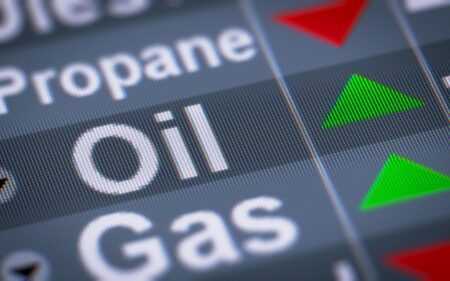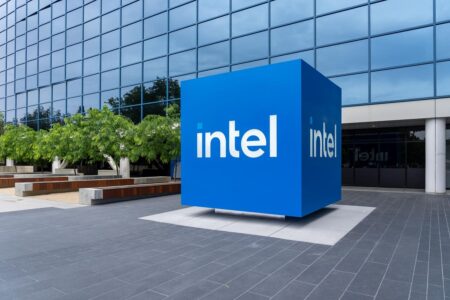When President Trump was a businessman, he was famous for taking on lots of debt. Now that he’s the President, I believe that companies would be smart to do the opposite.
High-debt companies run at least three risks.
- Rising interest rates. Tariffs could make some goods scarcer. Tight immigration policy could make labor scarcer. The combination could push up inflation, leading to higher rates that make interest payments more painful.
- A recession. If the economy turns sour, companies with lots of debt are in danger of falling into the bankruptcy chasm. J.P. Morgan Chase thinks the chance of a recession is 60%.
- Uncertainty. Frequent policy changes increase uncertainty. When uncertainty reigns, low-debt companies are the safer bet.
Even when the economic skies look sunny, I favor low-debt companies. All the more so now.
Here are five publicly traded companies that stand out because they have little or no debt.
Gentex
Down 37% over the past year, Gentex Corp. (GNTX) of Zeeland, Michigan, seems to me due for a comeback. The company’s main product is self-dimming mirrors for cars. Car sales in the U.S. are so-so, and Gentex has stopped shipping to China.
The U.S. has imposed a 145% tariff on imports from China, which has retaliated with a 125% tariff. Analysts expect Gentex’s profits to fall about 3% this year, but bounce back in 2026 and 2027.
Gentex is totally debt-free, and the stock sells for about 13 times earnings.
Employers Holdings
Employers Holdings Inc. (EIG), out of Reno, Nevada, sells workers compensation insurance, mostly in California. It serves mid-sized and small businesses, especially restaurants. Profits haven’t grown fast, but have been consistent: No losses in 23 years.
The stock is cheap, selling for 1.1 times book value (corporate net worth per share). But it seems to be permanently cheap: the price-to-book ratio is the same as the ten-year average.
Monarch Cement
Monarch Cement Co. (MCEM), which I mentioned in a recent column on small stocks, has a market value of a little under $1 billion. It hails from Humboldt, Kansas, and does business in that state plus parts of Arkansas, Iowa, Nebraska, and Oklahoma.
The company has zero debt, and lately has posted a profit margin of about 22%. Earnings are reasonable consistent: Monarch has been profitable in 14 of the past 15 years. (It had a small loss in 2011.) So far as I can tell, the company is completely neglected by Wall Street.
Cal-Maine Foods
I featured Cal-Maine Foods Inc. (CALM) in columns about low-debt stocks a year ago and two years ago. It posted 12-month returns of 21% the first time and 75% the second time. Sticking with it for a third straight year is tempting fate…but I will.
Cal-Maine, based in Ridgeland, Mississippi, is the largest U.S. egg producer. Eggs, as every supermarket shopper knows, have been fetching high prices. Cal-Maine racked up a 50% return on stockholders’ equity in the past four quarters.
That’s unsustainable, and the whole world knows it, which is why the stock sells for less than five times earnings.
T. Rowe Price
The big mutual-fund company, T. Rowe Price Group Inc. (TROW) is down 19% year-to-date through May 2. Based in Baltimore, Maryland, it sells both stock and bond funds, and runs investment plans for employers.
It’s no mystery why the stock is down this year: It’s been a rocky year for the markets. But T. Rowe has history on its side. It has been profitable every year in the past 30 years, always scoring at least a 15% return on equity and occasionally exceeding the 30% barrier.
The company’s debt is only 3% of its equity.
The Record
The average 12-month return on my past recommendations of low-debt stocks has been 25.4%, versus 11.15% for the Standard & Poor’s 500 Total Return index. That’s based on 22 columns written from July 1998 through a year ago.
Bear in mind that my column results are hypothetical and shouldn’t be confused with results I obtain for clients. Also, past performance doesn’t predict the future.
My picks from a year ago achieved a 39.8% return from May 6, 2024 through May 2, 2025, while the index was up 11.3%. All five of my recommendations beat the index, led by Cal-Maine’s 75.5% return.
Alpha Metallurgical Resources Inc. (AMR) returned 57.3%, Mueller Industries Inc. (ML) 31.9%, Cognizant Technology Solutions Corp. (CTSH) 18.8%, and Incyte Corp. (INCY) 15.6%.
In 22 outings, my low-debt recommendations have beaten the S&P 14 times and been profitable 15 times.
Disclosure: I own Cal-Maine Foods and Mueller Industries personally and for most of my clients.
Read the full article here











